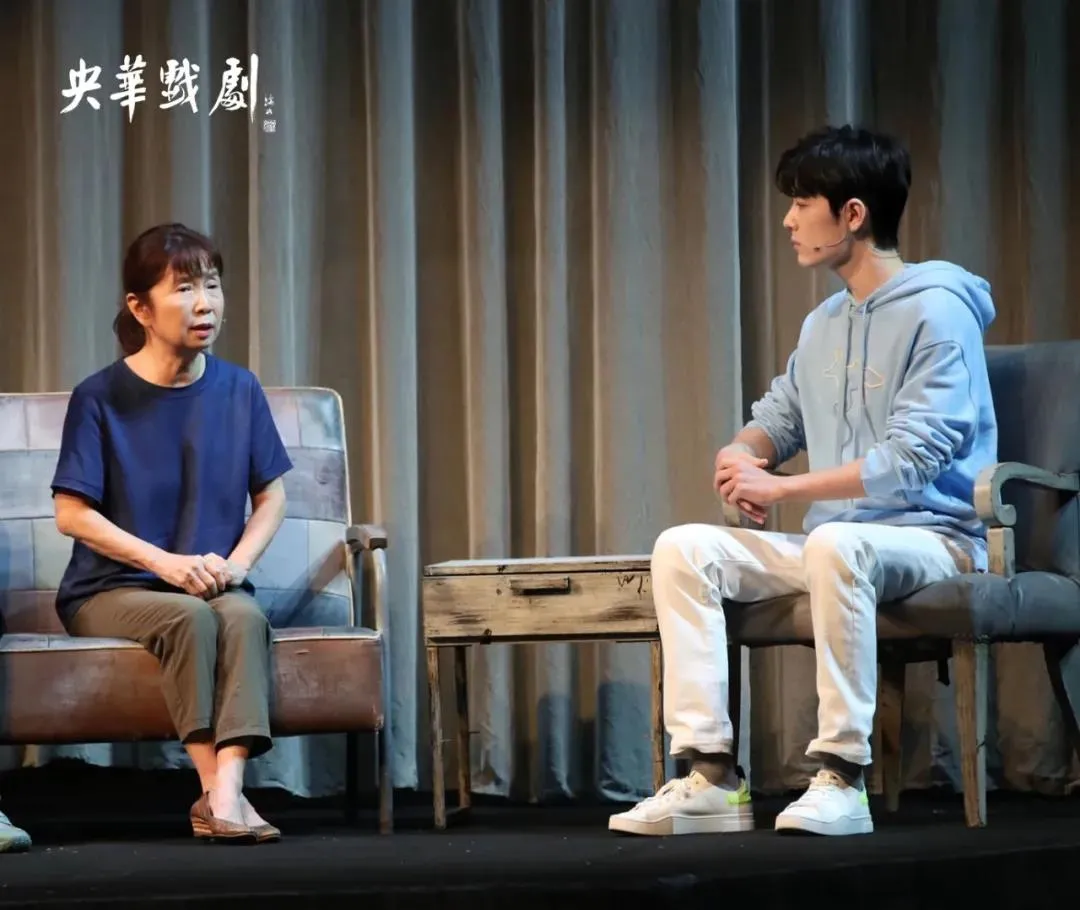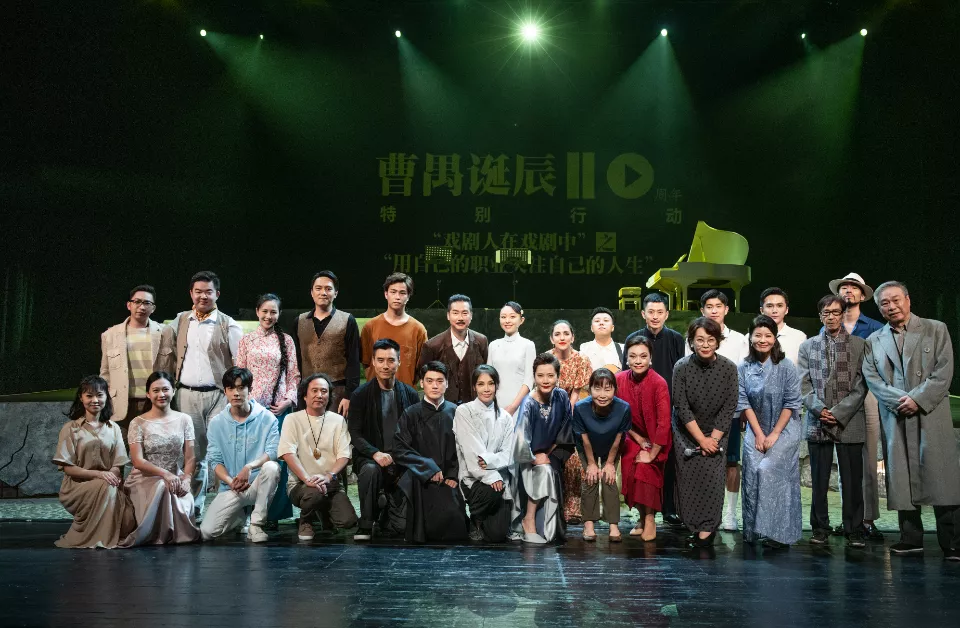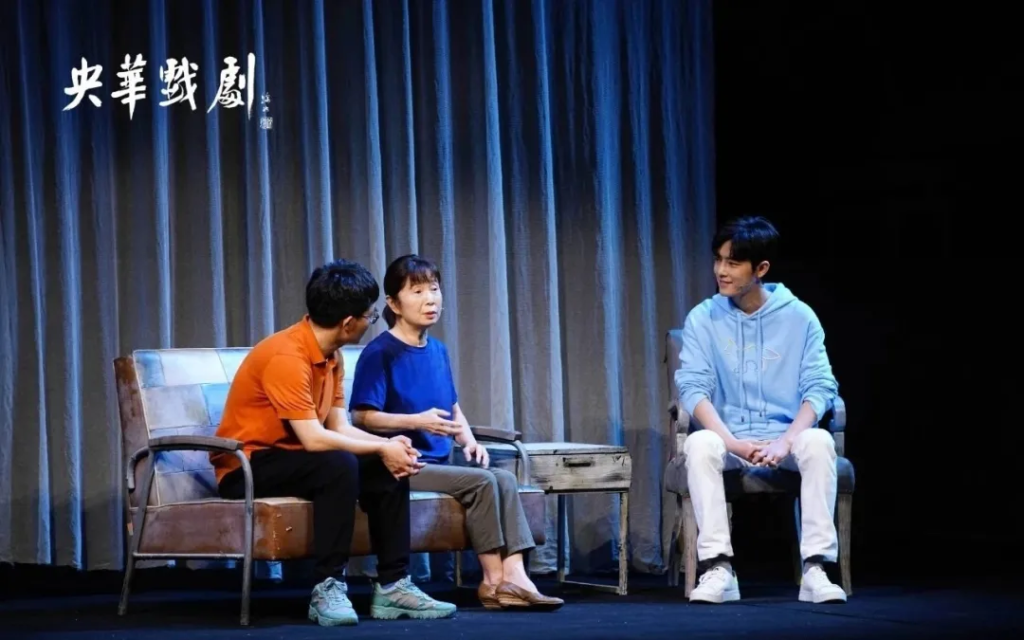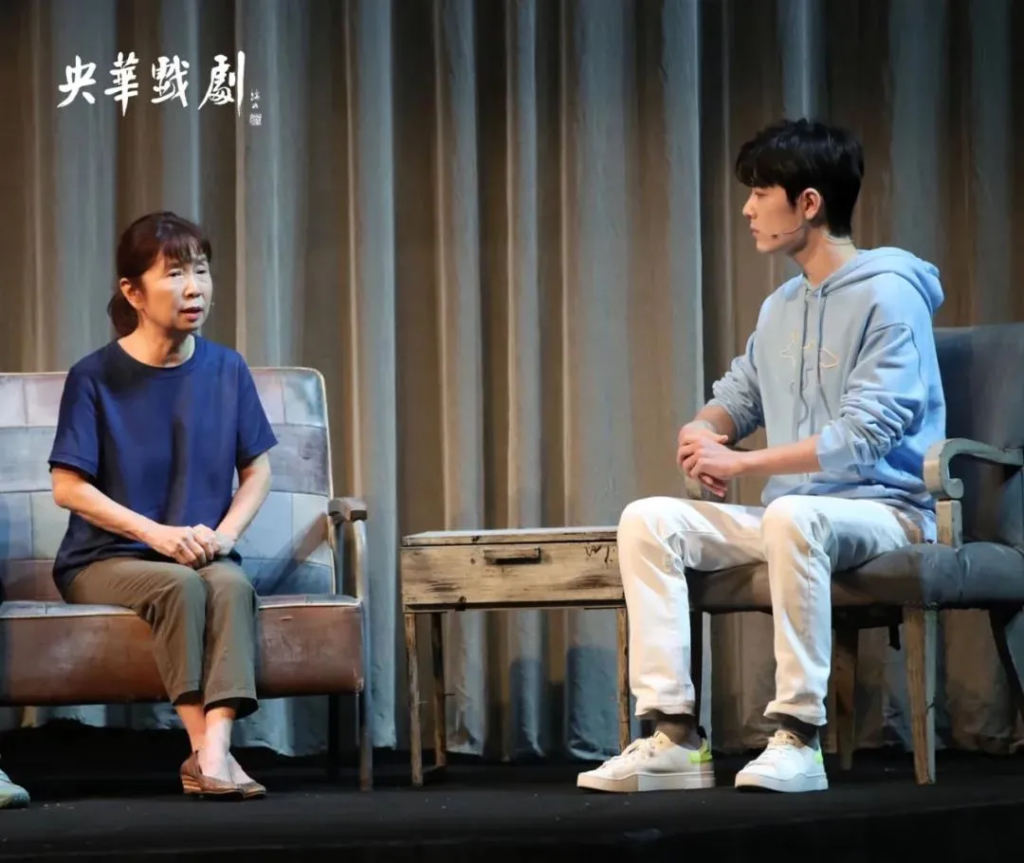(Excerpt) Exclusive Interview – The Story Behind “Cao Yu’s Special 110 Year Old Commemoration Event”

Original Article: https://mp.weixin.qq.com/s/TVxr2OkA_NRlCsvsEzRsVQ
This article is published by Blogger World 博客天下 Weixin on 31 Aug 2020. I only extracted the portions that spoke about Xiao Zhan and how they made contact.
01 Youth
Tens of thousands of fans flood into the live broadcast, not only to see their idol, who had not been seen for a while, but also to enjoy a feast of plays strung together by Cao Yu and Wan Fang. Exclamations such as “I didn’t know plays were this amazing” and “I want to watch at least once in the theaters” were seen in the scrolling comments.
This was the first time the theater attempted live broadcast. Wang Keran was not sure whether this attempt could aptly showcase the difference between plays and television dramas – how it is done “live” and how it can interact with the audience, “but what I know is, in this day and age, most audience choose to watch online, hence I will use this method to showcase the charm of theaters.”
Wang Keran’s thought was – how do we commemorate Cao Yu? “Can it be considered a commemoration by simply acting his works on stage?” He felt that something was simply missing.
He wanted a youth, to raise questions on Cao Yu’s works – and via these questions, highlight the vitality that links up the stories and the lives of our youth.
Wang Keran feels that, as classics, there should be a certain core vitality to it that crosses time, and touches the hearts of people regardless of the era. If they did not create the chance for the youth to understand the classics, it might instead create estrangements and misunderstandings.
The Chinese Central Drama Group used “Cao Yu’s Special 110 Year Commemoration Event” as the starting point to begin the conversation, in hopes of resonating with the audience.
Wang Keran said “The core of the conversation is, can Cao Yu’s works still stir up people’s emotions?”
The commemorative segment on Wan Fang and Xiao Zhan’s “Conversation of Two Eras” was birthed under such a thought.
As the daughter of renowned author Cao Yu, as well as a famous playwright in her own right, Wan Fang has an open attitude. She felt that this should be a question to be left to actors “On one hand, classics that has the hallmark of its era, but on the other hand, its influence also goes beyond its era. How do you portray that? How do you face new audiences?”
The emphasis on “current”, is a special feature of the Chinese Central Drama Group.
According to statistics for the audiences of Chinese Central Drama Group, 60% are aged 18 to 40, 70% are below 45, 90% are below 55. This is related to Wang Keran’s view on theater, to him, the audiences are able to project their mental rhythm onto the stories portrayed in theaters, “Plays are always reflecting the spiritual unrest of the people now, under the current circumstances.”
For many late nights, Wang Keran spent time with pop culture. He saw all kinds of popular works, fantasy literature, and also books recommended by the interns in the theater. He is 50 this year, and hence it was difficult for him to be interested in some of the works, but he still persisted, “I feel that as someone who is in performing arts, if I can’t communicate with teenagers, that I’ll be really old. My age is like this, but my expressions cannot cause the youth to feel that there is a gap between us.”
Before this live broadcast attempt, he already started using TV celebrities on stage. Starting from “Watching TV with You” (TN: A play), he has invited stars from all age groups to leave their mark on the Chinese Central Drama Group.
This was not a mere commercial consideration. Wang Keran felt, plays are an art of “actor”. In the history of Chinese Opera and theater history, it is common to be headlined by the actor, and fans attending for the sake of the actor is almost traditional.
“Which of the Chinese plays were not acted by the biggest star of that era? If the star is suitable, we would invite him/her. I need the star, I just need him/her to stand there, so that more people would believe and understand the charm of the theater.”
In stirring up the interests of young audiences, he always had this optimistic faith – “Many youth, while exploring why that pudding is delicious, is also exploring why pain and suffering descends upon them, why happiness is like a bright light, momentary but yet gives so much deeply enjoyable emotions to themselves.”
When Cao Yu wrote “Thunder Rain”, he was also a youth. When “Thunder Rain” premiered in China on 1935, it was organized by Gusong Drama Group from Tianjin City Normal School, and the 25 year old Cao Yu went to direct the rehearsals. All the actors were students, the set came from the school shed, they rehearsed during the summer break and acted in the school hall.
No matter it was via a popular celebrity, or via live broadcast, Wang Keran wanted to share and introduce theater to more youths.
02 Questions
Before this, Wang Keran never heard of Xiao Zhan. There was once a friend who brought up that this young man might be interested in plays, but he did not think much of it.
However, after a string of events, he felt that this young man is quite interesting, “The most mysterious thing about a person’s life is how impermanent it is, and this is also where the soul of theater lies.”
“This person Xiao Zhan, is a question, isn’t it?”
When organizing “Cao Yu’s Special 110 Year Commemoration Event”, he asked his friend to bring Xiao Zhan a message, with a mission – raise some questions to Wan Fang’s “Journey of Winter” and “You and I”.
“I’m just seeing if we’re fated, if he could ask the questions.” Wang Keran hoped that the questions could highlight the deep thought and analysis of the current youth.
A few days later, Xiao Zhan replied a long list of 20 to 30 questions, to his amazement, and hence sealed the collaboration. After the broadcast, many speculations left Wang Keran laughing at how ridiculous they were.
“Some came to my Weibo to attack me, said that the questions were prepared by us for him. Excuse me, I’m 50 already, I really can’t ask questions like a 20 year old.”
“Aren’t you worried that Xiao Zhan would bring about some negative doubts?”
When “Blogger World” raised the same question, Wang Keran said “Let them question. Wan Fang and I, both of us just have one statement, if we are always moving forward with ‘truth’, then we will do what we should do.”
In this special event, the conversation between Wan Fang and Xiao Zhan, they started with writing and they quietly touched on life experiences, Wan Fang brought up “sincerity”, “choice”, “confusion”, which were exactly the things that Xiao Zhan was facing, and it showcased the strength of two eras resonating with each other. This was exactly the effect Wang Keran was looking for.
He used Xiao Zhan, but rejected using this as a major publicity point, because “we do not want so much traffic, we want strength.”
Wan Fang explained the meaning of “pain” for an actor to Xiao Zhan – “All that you have experienced, including pain, I feel that there will be a chance to portray its positive side. When you are portraying a certain character, you will be able to have a deeper understanding.”
She also used the same feeling to describe the creativity rush that “pain” bestowed upon her – “If your life is especially happy, especially joyful, then you might not have thought of creating anything, because you just need to enjoy what you have, no one would ask – why am I so happy? Only when you are in adversity, then you would have many questions, what is this for? What should I do? This is the source of creativity.”
This type of questioning can be seen throughout Wan Fang’s “You and I”, as she remembers her parents. She once said to her younger sister, the main pursuit of writing this book was truth. Her sister rebutted, “What you know isn’t really the truth, only fragments.”
Although Wan Fang agreed with this opinion, she also felt, “I must find it between these fragments. Truth exists from seeking it, isn’t the act of seeking a form of truth?”
She admitted that she is a “limited” “truthful” author. In this book, she never conclusively tells you how the experiences of Cao Yu was like. She even inserted blurred memories from different people. Readers would not be able to see the truth directly, but they could feel the realism of the memories.
Wan Fang split her creative works into two parts – one belonging to TV dramas, “There will be stray thoughts, the audience would be considered, the ratings would be considered”; and another belonging to literature and theater. There she wrote from her heart, realistically using her emotions then and her questions then. She always believed that “things with stray thoughts, won’t be really good things.”
How do you move the audience with works written so personally by the author?
“I cannot represent everything, but I can represent many. As long as you have an understanding of the truth behind human nature, you can try your best to understand, to explore, the expression of truth can represent many people.”
Wang Keran rejected using “lead” to describe the meaning of theater in culture – because leading is a form of education, but theater is not. It never wanted to conclude anything, it only wanted to be the path to truth, to soothe the bewilderment of humans, to express the depth of souls.
Just like that day, Wan Fang answered Xiao Zhan, “What is the core of a piece of work? It is questions. The process of creating a piece of work is a process of questioning, just a journey of nearing the answer, of finding the answer.”
And in questions, there are infinitely vast and rich nutrients, enriching the souls of humans.



Thank You. Beautiful.
Thank you for translating this article!
As many Europeans, I got to know Xiao Chan through his impressive acting in The Untamed, and when I discovered what he’s been going through in these months I was astonished.
He really seems to be an interesting, deep and beautiful soul and I’m happy that these theatre artists chose him to have this discussion.
Maybe this could lead in future to some form of collaboration of higher artistic value (as opposed to silly sketches and commercials, which are undoubtedly needed to be seen but I feel are a bit of a waste of his great potential)?
As an European person, I love knowing more about Chinese culture and traditions, and I feel that if Xiao Chan would choose exploring this path, in music as in acting or filming, it could even more capture the interest of foreign followers just like me.
Thank you again and I’ll definitely follow your site for more info!
Ciao from Milan (Italy) 🙂